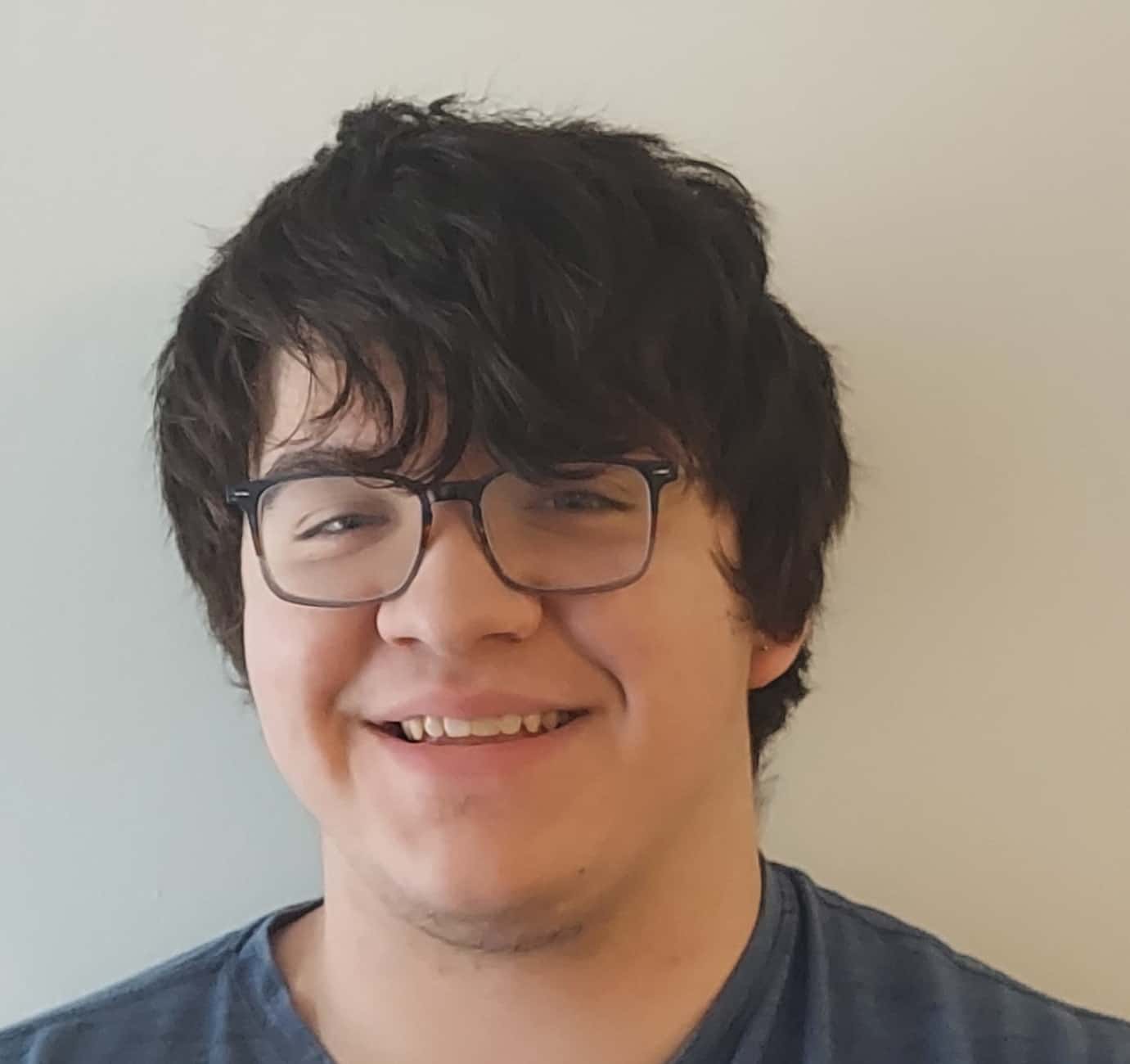Ginger Matzke of Michigan was initially skeptical about what the Mind-Eye Institute could do to help her 20-year-old son, Tucker. “I am thinking, ‘No way is a pair of eyeglasses the answer,’” she says after learning about the Institute’s work from the Internet.
And with good reason. Ginger had ached emotionally, watching her son struggle with a cascade of symptoms – “out-of-control” anxiety, panic attacks, nightmares, light sensitivity, constant headaches, comprehension issues, and problems making decisions — since sustaining a concussion while playing football is his last year of high school. “At the time, doctors kept insisting he would be fine. No one mentioned to me the possibility of post-concussive syndrome.”
Indeed, the neurological scars left by Tucker’s injury forced him to give up a partial scholarship to Michigan State University’s noted College of Music where he played French horn and later made it nearly impossible for him to hold down a job.
“I am a music student, and I am unable to read the notes on the page,” Ginger recalls Tucker telling her while he was still attending college. “Eighty percent of his classes at the time were focused on that instrument. He ends up failing two classes and then drops out of school in the fall of 2020. His panic attacks and anxiety were making it difficult for him to function.”
And all this was occurring to a young man who had earlier served his classmates as Homecoming King and taken advanced classes in high school until his concussion made course work difficult to comprehend. “I can read it, but I cannot understand it,” he reportedly told his parents.
How could just a pair of glasses resolve all this? Ginger thought. But she contacted the Mind-Eye Institute anyway. There, Tucker underwent intensive, advanced testing. The result was a prescription for a very individualized pair of therapeutic lenses.
Tucker’s first pair of Mind-Eye glasses arrived in January of 2022. “He wore them, and, afterwards, that first night, he is sleeping well again – no nightmares. Later, Tucker tells me, ‘I don’t think I have anxiety anymore.’ Never once in the three years since his accident had I heard him say this,” Ginger says.
She adds: “Joy and laughter later returned to my son’s life – literally within weeks of receiving those glasses. His light sensitivity also diminished, and his short-term memory improved. He began recalling – and playing – music again.”
The Mind-Eye Institute, based in Northbrook, Illinois, is internationally known for its use of therapeutic eyeglasses and other advanced optometric tools to manipulate the amount, angle, and intensity of light passing through the retina. Such manipulation creates changes in the brain activity of patients suffering the symptoms of traumatic head injury, concussion, stroke, and neurological disorders. Retinal stimulation also has proven effective in building undeveloped visual processing skills in children – and adults – with autism spectrum disorder, attention deficit hyperactivity disorder, and other learning, socialization, and behavioral difficulties.
That’s because the retina is composed of brain tissue and is an important part of a person’s central nervous system, says Deborah Zelinsky, OD, founder and research director of the Mind-Eye Institute.
“The right mix of prescriptive lenses, filters, and prisms modifies the distribution of light on the retina. These modifications occur in both space and time, thereby altering the dynamic relationship between the mind’s retinal inputs and the body’s internal reactions and responses. The implication is that this retinal stimulation can promote changes in basic physical, physiological, and psychological systems involved in motor control, posture, emotion, and thinking,” Dr. Zelinsky says.
“Those were dark days,” Ginger says. “When Tucker was at school, he sometimes would call me in the middle of the night because of a panic attack. One night he called to tell me he loved me; he thought he was going to die. A therapist who later tested him said his scores were ‘off the chart’ for anxiety and depression.’”
Today, Tucker is talking about returning to college. “His eventual goal is to become a music instructor,” Ginger says.
Thanks to a pair of eyeglasses.
Although Tucker has undergone significant symptomatic relief, his experience is not always the norm nor is it guaranteed for every patient. Check out the Mind-Eye Institute website at www.mindeye.com for additional information.

Success Stories, Processing Disorders, Traumatic Brain Injury
Pair of Mind-Eye ‘Brain’ Glasses Put Music Back in His Life
Mom’s Skepticism Turns to Gratitude; Son’s ‘Joy and Laughter’ Return
